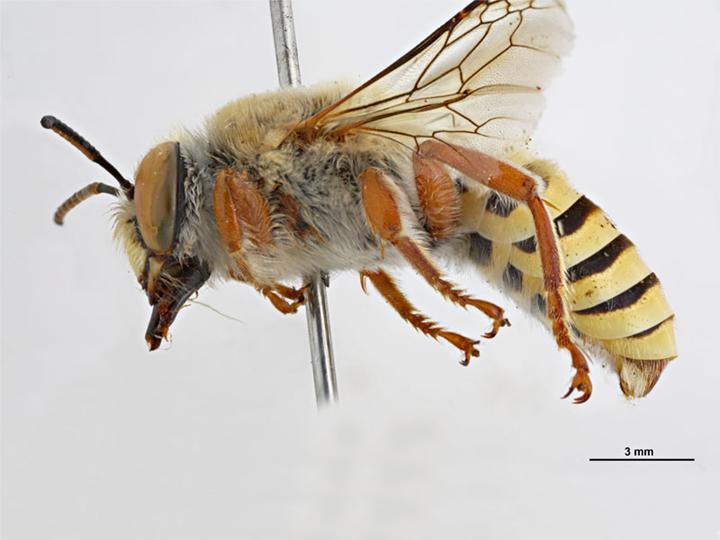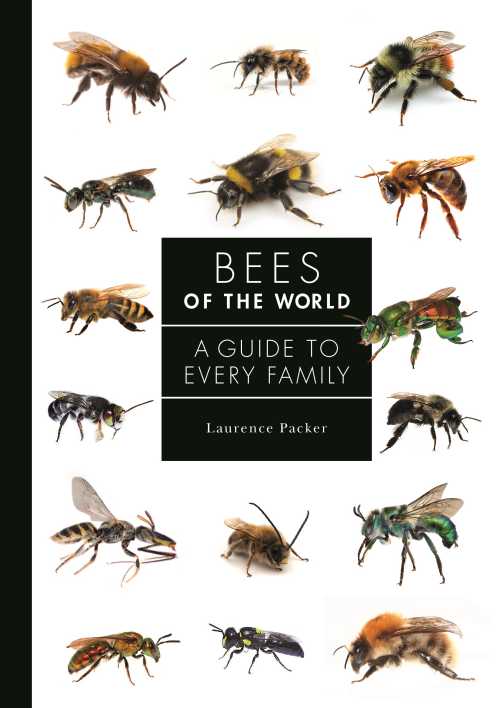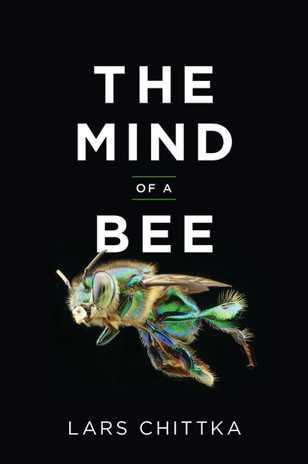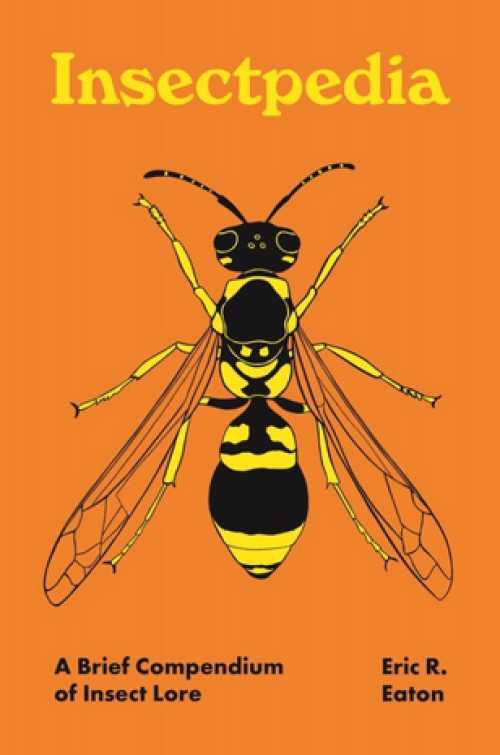The Stenotritidae Bee Family
This is, according to Packer1, Stenotritidae the smallest bee family, with only 2 genera and 21 species.
Stenotritidae - Overview
Bees in this family are solitary, ground-nesting bees, which are found only in Australia1,2. Some nests can be quite shallow, others are over three metres deep2,3. Nests can be quite close to each other2.
These are large, fast-flying bees. Stenotritids have their ocelli (simple eyes) situated low on the front of the head.
Stenotritids are short-tongued bees2.
This group was previously categorized as a subfamily of the Colletidae2,3.
 Ctenocolletes tigris male, Source: Sarah McCaffrey, Museum Victoria, courtesy of Wikipedia Creative Commons Attribution 3.0 Australia - see Image Reference below.
Ctenocolletes tigris male, Source: Sarah McCaffrey, Museum Victoria, courtesy of Wikipedia Creative Commons Attribution 3.0 Australia - see Image Reference below.Genera of the Stenotritidae Bee Family
Stenotritus
There are currently 11 known species in this genus, but there may be more awaiting recognition and description. These are large bees.
The males have large compound eyes, which, Packer notes1, is typical in bees species with fast-flying females.
A nest of
Stenotritus greavesi was described in the 1980s3. Nest burrows were simple, irregular holes marked by the presence of a small mound (tumuli) of soil. Burrows were fairly shallow, and did not exceed 16cm in depth. Completed nests had between 2 and 4 individual nest cells and were plugged with earth. Each cell was internally smooth, and coated with a waterproof lining.
Inside each nest cell, was an egg provisioned with a pollen loaf to feed the developing larvae once emerged. The pollen came mostly from rough honey myrtle (Melaleuca scabra).
Ctenocolletes
This genus has 10 species, most of which black, with greyish to orange hairs. However, this genus also includes the beautiful green bee, Ctenocolletes smaragdinus, also known as the Emerald Comb-Bearer bee.
Nests of Ctenocolletes are often in deep sand, and have larger tumuli at the nest entrance1.
Bees Of The World - Book Review
References
Image reference: Ctenocolletes tigris male. Source: Sarah McCaffrey, Museum Victoria, courtesy of PaDIL and Wikipedia Creative Commons Attribution 3.0 Australia.
1. Bees of The World: A Guide To Every Family, Laurence Packer. Princeton University Press, Princeton & Oxford, 2023; ISBN: 798-0-691-22662-0.
2. Australian Faunal Directory (biodiversity.org.au)
3. HOUSTON, TERRY F. AND THORP, ROBBIN W.: BIONOMICS OF THE BEE STENOTRITUS GREAVESI AND ETHOLOGICAL CHARACTERISTICS OF STENOTRITIDAE (HYMENOPTERA); Rec. West. Aust. Mus. 1984, 11 (4): 375·385.


